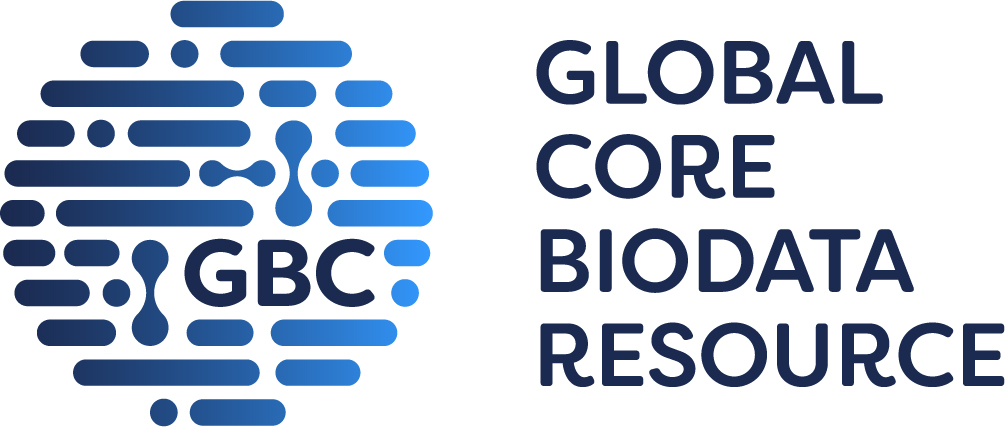
GtoPdb is requesting financial support from commercial users. Please see our sustainability page for more information.
B-cell chronic lymphocytic leukemia

GtoPdb Disease Summaries
This section gives an overview of the disease, and where available shows the following:
- Synonyms: Shows known synonyms for the disease.
- Description: Gives a basic description/definition of the disease.
- Database Link: External links to the same disease at the Disease Ontology, OMIM or Orphanet sites.
- Immunopharmacology comments: General comments about the target's role in immunopharmacology, provided by GtoImmuPdb curators.
- Associated with: Counts are displayed for the total targets the disease is associated with in GtoPdb. The counts of targets and ligands of immunological relevance associated to the disease are also shown.
More information can be found in the help pages.
✖| Disease ID: | 1134 | |
| Name: | B-cell chronic lymphocytic leukemia | |
| Associated with: | 2 targets | |
| 5 immuno-relevant ligands |  |
|
| Synonyms |
| B-CLL | lymphoplasmacytic leukemia | small lymphocytic lymphoma |
| Description |
| B-cell chronic lymphocytic leukemia (B-CLL) is a type of B-cell non-Hodgkin lymphoma. |
| Database Links |
|
OMIM:
151400 Orphanet: ORPHA67038 |
Targets

GtoPdb Disease Summaries - Targets
Click on the target name to link to its detailed view page
Where available, information is display on the role of the target in the disease; drugs which target the disease and their therapeutic use and side-effects.
If there is mutation data curated in GtoPdb this is indicated, with a link back to the appropriate section on the target detailed view page
Immuno ligand interactions - If available, a table of immuno-relevant ligands is shown. These ligands have been curated as having an association to the disease and possess interaction data with the target in GtoPdb. The approval status of the ligand is shown, along with curator comments and an indication of whether the target is considered the primary target of the ligand.
More information can be found in the help pages.
✖| CCR7 | |
| References: | 4 |
| CXCR5 | |
| Role: | CXCR5 and its ligand, CXCL13 are over-expressed in B-cell chronic lymphocytic leukemia. |
| References: | 3 |
Ligands

GtoPdb Disease Summaries - Ligands
Click ligand name to view ligand summary page
- Approved: If the ligand is an approved drug this is indicated, along with approval bodies.
- Immuno: Immuno icon indicates the ligand is immuno-relevant
Click the arrow in the final column to expand comments
- Immuno Disease Comments: Curatorial comments specifically added as part of GtoImmuPdb. They give more information on the association between the ligand and disease in the context of immunopharmacology.
- Clinical Use: General clinical comments relating to the ligand and may not necessarily be specific to the disease in question. With hyperlink to more details on the ligand summary pages.
- Bioactivty Comments: Curatorial comments specifically about the compounds biological activity - with hyperlink to more details on the ligand summary pages.
More information can be found in the help pages.
✖| Key to terms and symbols | Click ligand name to view ligand summary | Click column headers to sort | |||||||||||||||||||||||||||||||||||||||||||||||||||||||
|
|||||||||||||||||||||||||||||||||||||||||||||||||||||||||
References
1. Awan FT, Schuh A, Brown JR, Furman RR, Pagel JM, Hillmen P, Stephens DM, Woyach J, Bibikova E, Charuworn P et al.. (2019) Acalabrutinib monotherapy in patients with chronic lymphocytic leukemia who are intolerant to ibrutinib. Blood Adv, 3 (9): 1553-1562. [PMID:31088809]
2. Byrd JC, Harrington B, O'Brien S, Jones JA, Schuh A, Devereux S, Chaves J, Wierda WG, Awan FT, Brown JR et al.. (2016) Acalabrutinib (ACP-196) in Relapsed Chronic Lymphocytic Leukemia. N Engl J Med, 374 (4): 323-32. [PMID:26641137]
3. Bürkle A, Niedermeier M, Schmitt-Gräff A, Wierda WG, Keating MJ, Burger JA. (2007) Overexpression of the CXCR5 chemokine receptor, and its ligand, CXCL13 in B-cell chronic lymphocytic leukemia. Blood, 110 (9): 3316-25. [PMID:17652619]
4. Ghobrial IM, Bone ND, Stenson MJ, Novak A, Hedin KE, Kay NE, Ansell SM. (2004) Expression of the chemokine receptors CXCR4 and CCR7 and disease progression in B-cell chronic lymphocytic leukemia/ small lymphocytic lymphoma. Mayo Clin Proc, 79 (3): 318-25. [PMID:15008605]
5. Herman AE, Chinn LW, Kotwal SG, Murray ER, Zhao R, Florero M, Lin A, Moein A, Wang R, Bremer M et al.. (2018) Safety, Pharmacokinetics, and Pharmacodynamics in Healthy Volunteers Treated With GDC-0853, a Selective Reversible Bruton's Tyrosine Kinase Inhibitor. Clin Pharmacol Ther, 103 (6): 1020-1028. [PMID:29484638]
6. Meglio M. Phase 2 Data Highlight Fenebrutinib’s Impact on Brain Lesions in Relapsing Multiple Sclerosis. Accessed on 25/07/2023. Modified on 25/07/2023. NeurologyLive, https://www.neurologylive.com/view/phase-2-data-highlight-fenebrutinib-impact-brain-lesions-in-relapsing-multiple-sclerosis
7. Padron E, Painter JS, Kunigal S, Mailloux AW, McGraw K, McDaniel JM, Kim E, Bebbington C, Baer M, Yarranton G et al.. (2013) GM-CSF-dependent pSTAT5 sensitivity is a feature with therapeutic potential in chronic myelomonocytic leukemia. Blood, 121 (25): 5068-77. [PMID:23632888]
8. Santos FP, Kantarjian H, Cortes J, Quintas-Cardama A. (2010) Bafetinib, a dual Bcr-Abl/Lyn tyrosine kinase inhibitor for the potential treatment of leukemia. Curr Opin Investig Drugs, 11 (12): 1450-65. [PMID:21154127]
9. Sharman JP, Banerji V, Fogliatto LM, Herishanu Y, Munir T, Walewska R, Follows G, Karlsson K, Ghia P, Corbett G et al.. (2019) ELEVATE TN: Phase 3 Study of Acalabrutinib Combined with Obinutuzumab (O) or Alone Vs O Plus Chlorambucil (Clb) in Patients (Pts) with Treatment-Naive Chronic Lymphocytic Leukemia (CLL). Blood, 134 (Supplement_1): 31. [PMID:31724010]
10. UK Department of Health and Social Care. COVID-19 treatments could be fast-tracked through new national clinical trial initiative. Accessed on 01/06/2020. Modified on 01/06/2020. gov.uk, https://www.gov.uk/government/news/covid-19-treatments-could-be-fast-tracked-through-new-national-clinical-trial-initiative
11. Wu J, Zhang M, Liu D. (2016) Acalabrutinib (ACP-196): a selective second-generation BTK inhibitor. J Hematol Oncol, 9: 21. [PMID:26957112]








